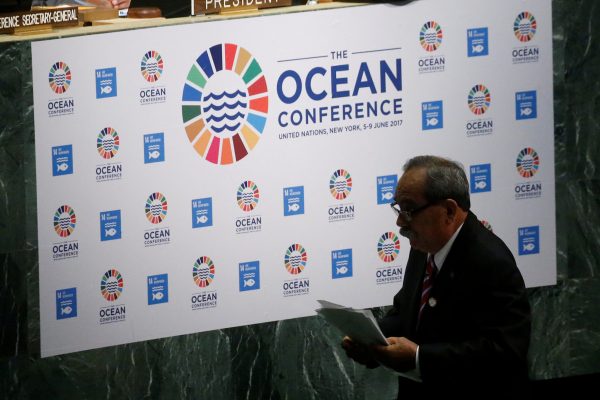As a result, there are some interesting new faces in parliament — some of whom have already been vocal in calls for reform, such as Bryan Kramer and Allan Bird. It remains to be seen how much of an impact they will be able to have from the opposition benches.
Another stand out occurrence of the elections was Sam Basil’s decision to join the O’Neill government, which was accompanied by a statement that one of the reasons he did so was to secure access to constituency funding. This confirmed what many have known for some time: members of parliament (MPs) in the opposition are at the back of the queue to receive funding, which makes it difficult for them to deliver on their campaign promises.
Reports of electoral observers have revealed that there are serious structural issues that undermine the credibility of elections in PNG, especially in relation to the validity of the electoral roll and concerning levels of election-related violence.
What’s more, though there were 167 female candidates, none were elected — including the three who were in the previous parliament.
We have yet to see if there is sufficient political will to address these issues before the next elections in 2022 although a recent announcement on updating the electoral roll may be cause for cautious optimism.
More recently, Charles Abel handed down his first budget as minister of finance — an unenviable task given the parlous state of PNG’s finances. The budget has been criticised on a number of counts, including for apparently unrealistic revenue predictions, and if this proves true, there will likely be more economic and political difficulties ahead.
Moving to Solomon Islands, Manasseh Sogavare was removed from the prime ministership in November following a vote of no confidence in the Parliament. He was replaced by Rick Houenipwela but retained in the new government as deputy prime minister. This is potentially only a temporary outcome with general elections expected to be held in November of 2018.
Prime Minister Houenipwela — who is a former governor of the Central Bank and has worked at the World Bank — is generally regarded as a strong figure when it comes to good governance. But he still must wrangle over the politically contentious anti-corruption bill, which he seeks to enact within the life of the current parliament.
In Vanuatu, while Prime Minister Salwai has held onto his leadership, there are clear divisions in his government. There are significant policy differences within the cabinet, most notably around the issue of changes to taxation. There have also been instances of discontent on the part of backbench government MPs who feel they are not sufficiently included in decision-making processes.
The end of the year saw Prime Minister Salwai face a motion of no confidence, with the Opposition citing signing up to PACER Plus as just one reason for its censure. The motion was defeated by 37 votes to 13, further to some judicious reshuffling of ministerial portfolios. The underlying commitment to stability in order to promote economic recovery has held things together, despite challenges such as the sudden death of the former president, Baldwin Lonsdale. Whether this resolve can be maintained through to the next general elections (scheduled for 2020) remains to be seen.
In Fiji, it is interesting to contrast 2017 with 2013 — the year that preceded the last general elections. In 2013, then military leader (and soon to be prime minister) Frank Bainimarama visited all parts of the country to campaign for his Fiji First party. This year, the Prime Minister has been noticeably absent and the majority of campaign activity has featured Attorney General (and holder of several ministerial portfolios) Aiyaz Sayed-Khaiyum. This would seem to indicate that Fiji First is confident of being returned to government next year.
Meanwhile, the Prime Minister has been active on the global stage, having taken on the mantle of climate leadership for his country and (possibly) the region. Fiji co-hosted an Oceans Conference in New York and chaired the UN Climate Change Conference COP23 in Bonn, which garnered much international attention and praise. Back home, these efforts were met with a mixed response. Some pointed to issues of domestic policy that appear directly at odds with the green messages the Prime Minister has been advocating abroad.
New Caledonia has had a fractious year. Not for the first time, there was no government in place for a number of months. The lengthy stand off was resolved only recently with Philippe Germain reinstated as the president.
This was achieved just days before the arrival of the French Prime Minister in the territory for talks on the upcoming referendum on the transfer of the remaining sovereign powers from France under the Noumea Accords. Ahead of the referendum (which must take place before November 2018) longstanding concerns about registration of all eligible voters remain. There are also law and order concerns in the territory, and this year has seen an increase of law enforcement personnel deployed by France.
As the year draws to a close there is much to reflect on, and 2018 will bring both new opportunities and challenges for politics in Melanesia.
Tess Newton Cain is an independent researcher and analyst with over 20 years of Pacific experience. She lived in Vanuatu between 1997 and 2016, and is a citizen of that country.
This article is part of an EAF special feature series on 2017 in review and the year ahead.

